CRN Exclusive: Weisler On Competing Against Dell, Reselling Surface Pro And The New HP Inc.

Weisler: 'We're Ready To Get Going'
HP Inc. CEO Dion Weisler, who is officially set to launch the new $55 billion independent PC business -- a Fortune 50 company -- on Nov. 1, spoke with CRN about the opportunity to gain share against Dell, reselling Surface Pro, Windows 10, Apple's enterprise play and the outlook for HP Inc.
Weisler is credited with sparking an innovation renaissance in the PC and printer business at HP Inc. with products like HP's Sprout immersive 3-D computer and plans for an all-out 3-D printing offensive starting in 2016.
The 25-year industry veteran has also overseen the launch of HP Inc.'s new PartnerFirst program, which includes a new ValueTrack aimed at driving more business around managed print, mobility as a service -- and everything as a service.
"I grew up in the channel," says Weisler. "It is thrilling and humbling to be able to lead the organization as a separate publicly traded company. We are excited to get going."
Edited excerpts of the conversation follow.
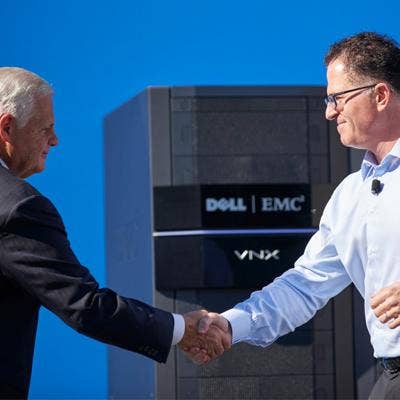
What impact will the Dell-EMC merger have on the PC market as Dell moves forward with the deal?
I can tell you any deal of this magnitude is distracting. When you are trying to put two massive organizations together with the best will in the world, it is a difficult thing to do and a very large undertaking. As a result, that naturally creates opportunity. We are extremely focused as a new company coming out of the gate. All we do is printing and personal systems. We do it all day, every day. We are now the pillar of stability in the industry because of that focus. And I think that does provide us and our partners with opportunity, as there will be some agitation created through that deal.

What sales incentives and plans will you implement to go attack Dell as it goes through this transformation?
That would be like the coach explaining to the competition what their next play is going to be. We are well mobilized on this. We know how to do this. There is not one single magic pill that you have here. There are lots of things that you do. And you can rest assured we are doing them in the best interest of our customers, channel partners and our shareholders.
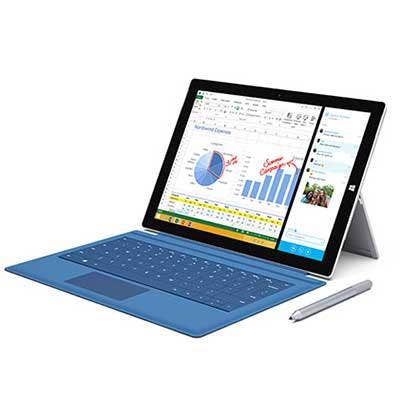
Why did HP make the decision to resell the Microsoft Surface Pro tablet and what impact will that have on the channel?
Indeed, Microsoft is another competitor in the marketplace. I kind of understand what they did here with regards to both Surface Pro and the [Surface Book] notebook that they have released. They created a category that frankly didn't exist before. If you look at Surface Pro, there were no customers out there with any demand pull at all for a Windows-based tablet device. This cost Microsoft a large investment when you consider all of the write-offs they made on Surface [version 1], Surface 2, and the advertising they put into Surface 3. What they did do as a result of that long-term investment was create market pull, customer pull, for Windows-based devices. They have created a category. And that is good news for the industry. A thriving Microsoft ecosystem is good for the industry, and we will be beneficiaries in the long term.
We have been doing hardware for a very long time. We can make just amazing devices and make devices that will be more delightful than anybody else.
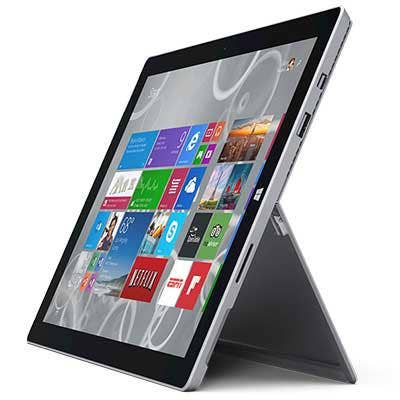
What was the underlying customer dynamic around the decision to resell Surface Pro?
If we have a large customer out there today that is currently buying lots of notebooks from us, lots of desktops from us, lots of printers from us and they ask if we can provide Surface Pros as well, we would hate to turn our back on those customers. And so that was really the genesis for why we agreed to sell and support Surface Pro. We want to support the entire fleet of products that our customers are taking today. But we'll give them choice as well. We have competing products inside the HP portfolio and we would be delighted to sell them those at the same time.
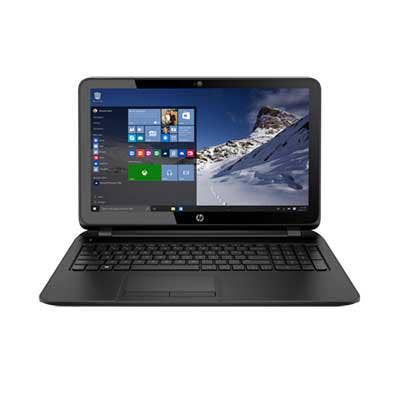
Was the key that HP Inc. wanted to make sure in the Fortune 500 you can provide the hardware support necessary for enterprise Windows 10 migrations?
We have built not only the channel, we have built an unbelievable service and support network around the world. We operate in 166 countries around the world. That requires infrastructure, know-how, capability, bank accounts, tax organization. This is no small feat.
If a customer has decided to deploy Surface Pro, then we can do that as well across that global network. But we will provide them with the ability to have access to our products, which of course is our first preference in how we target our sales team.

Is the message to partners to lead with HP Inc. products?
We will always lead with HP. Our salespeople are remunerated on selling HP products. If our existing customers that have elected to take Surface Pro want us to be able to service that rather than yield that customer toward a competitor, we will service it, but always the first preference will be toward HP. My sales guys don't earn a dime when they sell Surface Pro.
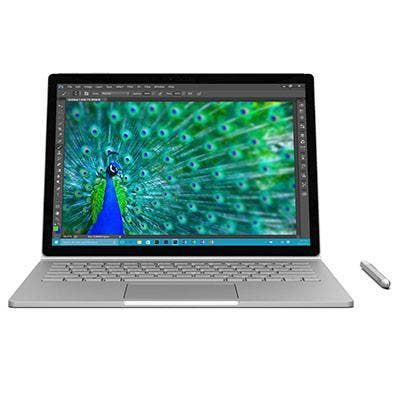
Would you ever look at reselling Surface Book?
What Microsoft is attempting to do [with Surface Book] is raise the average selling price of a Windows-based device. These are $2,500 prices. If Microsoft can create a demand for $2,500 devices again, that is a wonderful day, I think, for the entire industry, because we can start really innovating back inside the products, really adding some value, rather than the chase down in building a $199 device. I think Microsoft's strategy here is to create categories that don't necessarily exist in the market today.
People used to pay $2,500 for a device all day, every day, but over the years the average selling price has decreased, and as a result of that, features and innovation have come out of the products. If there is demand for $1,500 and $2,500 devices, we will be building them all day, every day, and that will be our focus.

Talk about the segmentation of the PC market and the specific segment Microsoft is targeting with Surface Book.
I think today it is a very small percentage of the market. It is fractional. There is a lot of noise around them entering into a market that from a unit perspective is tiny. Now if they can go create something there and it becomes 3, 4 or 5 percent of the market and there is some real heat in the market, [then] we segment, we segment and then we segment again. You can absolutely expect us to play in the $2,500 market if it is of great interest to our customers and there is demand for it.
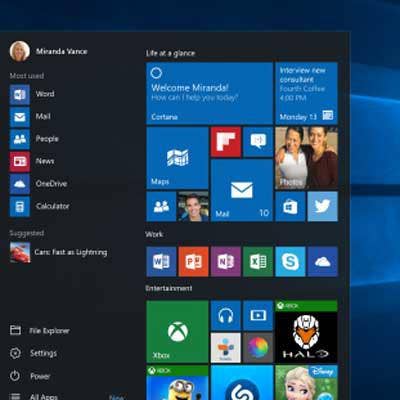
What is your perspective on the impact Windows 10 has had on the market?
I think a vibrant Windows ecosystem is incredibly important. As a base platform, Windows 10 is delightful and has some really interesting differentiation. If indeed it can attract the app developers on universal apps to develop one time and be able to operate from a mobile device all the way up to a workstation, that is very powerful and meaningful to IT managers that are struggling with so many costs associated with developing multiple times on multiple platforms.
I would say the jury is still out. It is still early days. What we do know is that Windows 10 is well-received by customers that are using it. It is qualitatively performing much better and that is really good news. As a result of that, we remain optimistic that in the medium term, it will have a positive impact on the business.
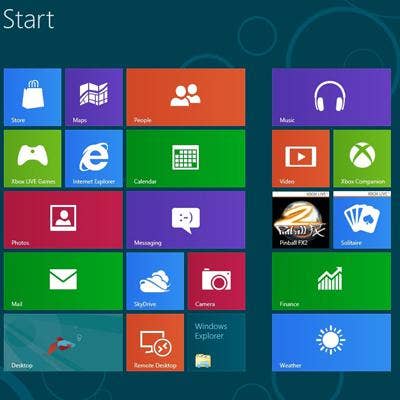
What's the level of Windows 8 inventory in the consumer market?
There is still some Windows 8 in the consumer market that the industry is still digesting. You heard me say at the end of our Q3 earnings call that we still think there are several tough quarters ahead as some of that is digested as we work through the transition. This has been different than any other Windows transition in history, rolling back as far as I can ever remember. That will take a little bit of time. But the root of this is: Is Windows 10 solving a customer pain point? With universal apps, I think it absolutely is. So we need to give it some time to attract the app developers and to provide the stimulus in the market that we believe it will.

So the outlook for the PC market for the short term is rocky?
Volatile for the short little while, but we remain confident as we head into FY16 that with the transition to both Windows 10 and [Intel] Skylake [chips] as we bleed off some of the inventory, 2016 ought to be better.
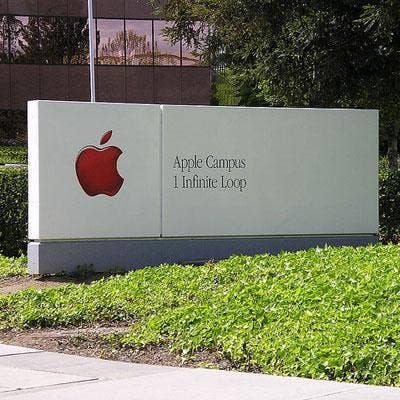
Apple just reported 40 percent growth in the enterprise market for the most recent quarter. What do you think of the Apple enterprise channel push?
We have been extremely focused on the commercial part of the market for several years now. I stood up at the securities analyst market back in 2013 and said that when you look at the portfolio of product, the intellectual property housed inside the organization in both printing and personal systems, when you look at the channel partner arrangements that we have and the very broad customer base, that we would orientate ourselves to work the commercial market and invest heavily there from an R&D perspective, from a resource perspective, sales specialists and go to market. Consistently, we have been taking share where we choose to play, and that has typically been in the commercial personal systems part of the market, laser and bringing ink into the office from a print side of the business, multi-function printers, managed print services.
When you look at Apple's results, it really does ratify our strategy that this is the area that is interesting. It is interesting for our alliance partners. It is interesting for our channel partners because we can make a real difference here and add value.

What is the message to partners on the HP channel DNA versus the Apple channel DNA?
I have worked for many of HP's competitors in the past, and I watched with envy how HP decade after decade has led in intimately understanding how a channel operates. I think over the course of years, we have had some of the biggest channel breakthroughs and programs on the planet. We are able to look through the lens of a channel partner, understand what is important to them and how to make that tie with what is important to us, be very open and transparent. This doesn't happen overnight. This is actually not very easy. You have to withstand the test of time. You have to work through good times and bad times together. We have done that over the years as well.This is actually not easy stuff. This is not just intellectual property. It is know-how. It is capability. Others have tried to copy it in the past. What we have to do is to continue to raise the bar, keep going to the gym, keep getting fit, keep making sure we are leading the pack, and that is what we intend to do.
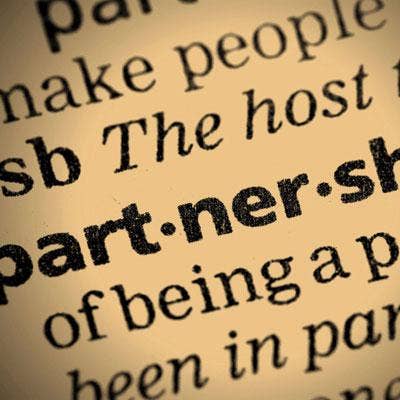
Can you describe the channel march as HP Inc. launches on Nov. 1?
Eighty percent of our revenue goes through the channel. What the separation provides is an opportunity to even extend it into the system integrator community. We are doing some terrific things with top partners like Accenture, Capgemini, PwC, Deloitte. They have all interestingly enough built some traditional practices in the core businesses, but are also looking at building some new practices in areas like 3-D printing, blended reality. Longer-term they are starting to think about building those practices and intersecting the things that we are doing in those spaces and the verticals we are going after.

How big is the growth opportunity around the new large system integrators? You haven't focused as much there.
We clearly see that as a growth opportunity, but it is not the only area for growth. We have more than 230,000 channel partners around the planet, and there is an incredible alliance that we have enjoyed with them over many years. We don't own it. We have to earn their business every single day. We have to have terrific products. We have to have terrific services. We have to have great partner programs.
So we don't want to orientate the organization away from the partners that have got us to the position where we are, but there are clearly customers out there that are procuring through the likes of PwC, Deloitte and Capgemini where, as you quite rightly say we haven't played as aggressively in the past. We will have a group of folks focusing on them in the future.
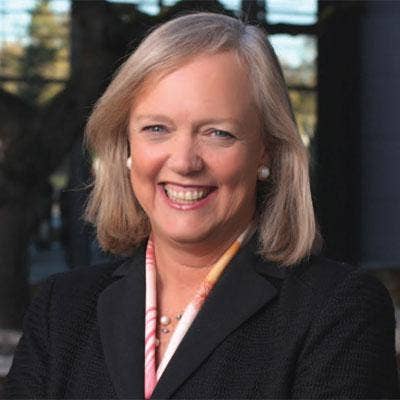
What will be your relationship with Hewlett Packard Enterprise going forward?
Our first Global Platinum partner in the world is Hewlett Packard Enterprise. That is one of the benefits of the separation. When you are part of a large, $110 billion organization, you sometimes take your own divisions for granted. Both [Hewlett Packard Enterprise CEO] Meg [Whitman] and I now have got dedicated teams working with each other in enterprise services and in my business to make sure we are maximizing the work that we do together. So I think they are going to be an incredible partner for us.
We are working on some terrific things around commercial mobility with [Hewlett Packard Enterprise Executive Vice President of Enterprise Service] Mike Nefkens and his team around Windows 10 and Office 365 in conjunction with Microsoft as well.
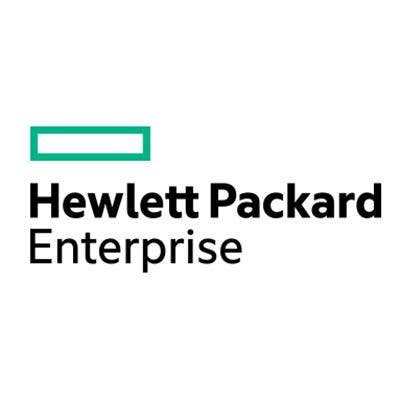
What kind of resources are you bringing to bear to work with Hewlett Packard Enterprise that you weren't before?
You really have two companies that are born out of a single-car garage moving into that two-car garage. Now we have to work both ways for each other's business and for each other's partnerships. So we have dedicated resources around the world to work on collective go-to-market initiatives. We are building [sales] funnels together. We are working closely in conjunction with other ecosystem partners with Microsoft and Intel, specifically in the areas of commercial mobility, where for example [Enterprise Services] has the capability to build really dedicated apps and manage the entire workflow for the largest companies of the world. Both Meg and I have very crisp actions [around this]. We get together every month. In fact, I get together with Meg tomorrow in a top-to-top meeting, where we review the sales funnel together and the opportunity of how we can go tackle some of our joint customers' biggest problems.

What other companies are you working with to bring into the Global Platinum partner program?
Obviously we'll have a strict set of guidelines around it. There are no other partners yet on that global partner program. Hewlett Packard Enterprise is the first. We are working with several companies to achieve that status. There will be a mix of programmatic things and investments that both companies will need to make in order to achieve that level of strategic tie up.
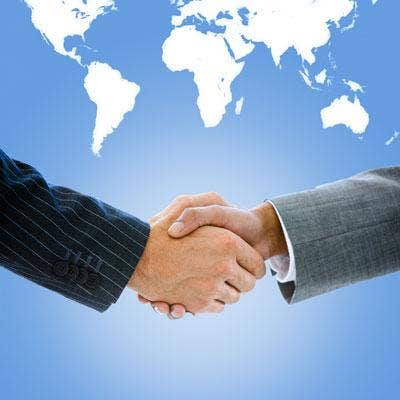
Is this Global Platinum partner program another opportunity to get system integrators on board?
We would love to have all of the right partners that we can possibly get onto our Platinum partner program. We think we have terrific products and services that we are bringing to market. Innovation is really alive and well inside both Hewlett Packard Enterprise and HP Inc. We have got a great story to tell. We are solving really tough customer problems and would like to amplify that through channel reach.

What has changed with HP Inc. splitting off into an independent company?
When you are part of a $110 billion organization, as a leadership team, you have to make trade-offs, because you go across this very vast organization.
What has changed is that as we separate, now the cash that we generate will either go back to our shareholders in the form of dividends or share buybacks, but a portion of that will go directly back into our business. That will enable us to innovate at a faster clip in our product portfolio, in our services offerings, into our supply chain, IT. There will be a thousand ideas for investment, and we won't be able to invest in everything we would love to invest in today, but the investments we do make will be inside the printing and personal systems business.